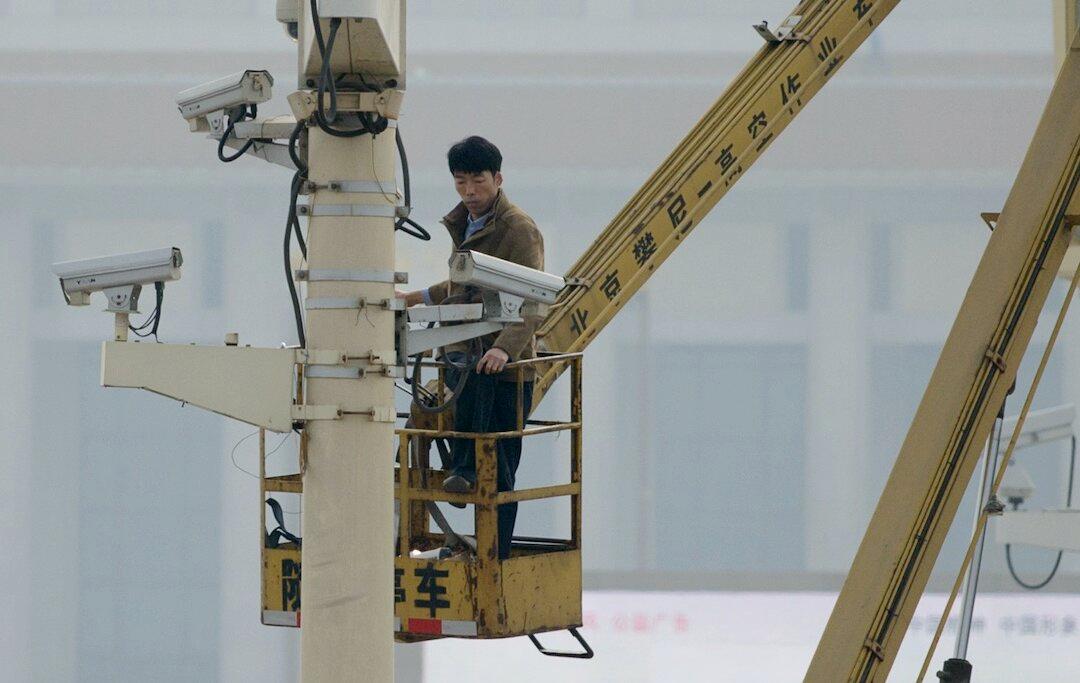At the annual National Day grand reception held in the Great Hall of the People on Sept. 30, top Chinese leaders all looked like they had axes to grind while supposedly celebrating the 65th anniversary of the founding of the People’s Republic of China.
In attendance were General Secretary Xi Jinping, Premier Li Keqiang, and the 5 other members of the Politburo Standing Committee, and all 25 members of the Politburo of the CCP Central Committee.
Many retired officials were also present, including Hu Jintao and Wen Jiabao, the top political tandem of the previous administration before Xi. Others present included figures like former premier Li Peng, former head of the National People’s Congress Wu Bangguo, former vice chairman Zeng Qinghong, and former leader of the Chinese regime Jiang Zemin.
Jiang Zemin’s appearance was met with surprise. He had not been seen in public since May this year, when he met with Russian President Putin. There have been months-long speculation that Jiang was either ill or had passed away. More recently, he is said to have been under house arrest.
At the reception, Xi Jinping toasted with Hu Jintao and Jiang Zemin. While Hu was all smiles, Jiang kept a poker face, as reported by Ming Pao, a Hong Kong newspaper.
“People shouldn’t be fooled by this apparent harmony and unity. Looking at their stern expressions, it’s apparent that each had more anxiety than anything else in their minds,” said Epoch Times commentator Zhou Xiaohui, referring to the reception guests. “It’s likely they weren’t thrilled about sitting together, as all of them know that behind this glamorous gathering lies a life-or-death struggle.”
“Nobody can guarantee that those who are sitting among the elites today won’t be in prison tomorrow,” Zhou said.
On Sept. 30, the day of the national reception, the Shandong Provincial Commission for Discipline Inspection posted on its website news that one Han Kefeng was removed from his post and expelled from the party membership for serious violations of discipline and law.
Han was vice director of the 610 Office in Shandong Province’s Haiwu City. The 610 Office is an extralegal Party organ created to carry out the persecution of Falun Gong in China.
In July 1999 Jiang Zemin launched a campaign to eradicate Falun Gong, a traditional Chinese spiritual practice. Xi Jinping’s ongoing purges of many officials aligned with Jiang Zemin’s faction, including those holding posts in the 610 Office such as Han Kefeng, are blows directed at the former leader.
For Jiang, these losses are not a mere matter of influence. According to Party insiders, Jiang and the faction grouped around him want to avoid being held responsible for crimes committed in carrying out the brutal persecution.
Zhou noted that last year’s National Day reception was attended only by incumbent political leaders—none of the retired officials showed up.
According to Zhou, the Chinese Communist Party always shows a united front when the party faces a crisis. This year was no exception—large-scale protests in Hong Kong, echoing the events that unfolded at Beijing’s Tiananmen Square in 1989, could possibly ignite protests like wildfire across mainland China and bring about the collapse of the Communist Party.
“In October last year, [former security czar] Zhou Yongkang appeared in public...Soon afterwards, many people with ties to Zhou were all being investigated,” commented a netizen with the username “Hua Xia Zheng Jian” on Chinese microblogging site Weibo. “For someone to show up in public only after a long absence from public appearance, it means that this person has completely lost his freedom— the end is near after his appearance.”
Zhou Yongkang was one of Jiang Zemin’s right-hand men in the persecution of Falun Gong. He appeared in the media occasionally last year— such as when he visited his alma mater for its 60th anniversary on Oct. 1 or when he met the family of late astronomy researcher Huang Rungan who passed away the same month.
In November, he again appeared in official media, expressing condolences for the death of Wang Chengxu, former vice chairman of the Chinese People’s Political Consultative Conference in Zhejiang Province.
In July this year, the Chinese authorities announced that Zhou was under investigation. This investigation, however, was begun as early as August 2013, as reported by Chinese media.
Xu Caihou, former Vice Chairman of the Central Military Commission made a high-profile appearance at a Chinese New Year celebration for retired military officials in Beijing, with Xi Jinping in attendance.
In June this year, the state-run Xinhua News Agency announced that Xu’s party membership had been revoked and he had been under investigation since March. He is the highest-ranking military official to officially undergo court-martial in the history of the People’s Republic of China.
Like Zhou Yongkang, Xu has ties to Jiang Zemin. In comments previously published by Epoch Times, politicial analyst Cheng Xiaonong said that “Xu Caihou was promoted by Jiang Zemin, and under him, Xu was himself in charge of promoting a lot of military officials.”
“Xu Caihou belongs to Jiang Zemin. It’s a group, and they defend one another,” Cheng said.




